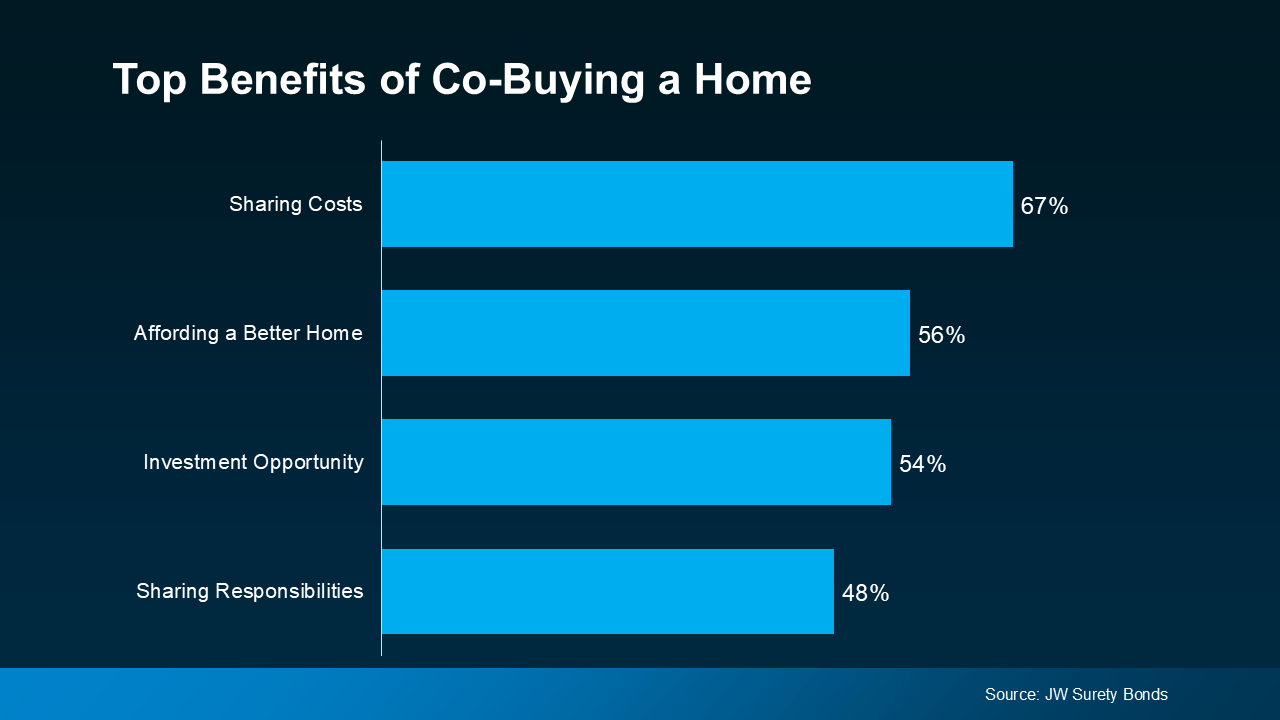How Co-Buying a Home Can Make Homeownership More Affordable in 2024

In today’s competitive housing market, buying a home can feel like trying to climb a mountain, especially with high home prices and mortgage rates constantly on the rise. If you’re struggling to get your foot in the door, co-buying might be a smart solution to help you achieve homeownership. In fact, Freddie Mac suggests that teaming up with family or friends could be the way forward for aspiring homeowners.
But, before you jump into this exciting option, there are several factors to consider. In this article, we’ll explore why co-buying a home is gaining traction, what you need to know before making the decision, and how it could be the perfect strategy to improve affordability in today’s market.
What Is Co-Buying a Home?
Co-buying a home involves purchasing property with one or more individuals, such as family members, friends, or even a group of investors. In an age where home prices have skyrocketed and mortgage rates are challenging for solo buyers, many are turning to this shared ownership model.
According to recent data from JW Surety Bonds, around 15% of Americans have already co-purchased a home, and nearly 48% of people are open to the idea of co-buying in the future. This trend is growing rapidly, particularly in high-cost areas where solo homeownership is becoming increasingly difficult.
Co-buying doesn’t just offer financial relief—it can also provide long-term benefits if you approach it strategically.
Why Should You Consider Co-Buying?
Co-buying a home isn’t just about pooling your finances; it offers a range of advantages that could make homeownership more accessible and more enjoyable. Here’s why you might want to consider this approach:

1. Shared Costs Make Homeownership More Affordable
One of the biggest advantages of co-buying is the ability to split the financial burden. Buying a home isn’t just about saving up for a down payment—there are also closing costs, monthly mortgage payments, property taxes, insurance, and maintenance expenses to think about. When you co-buy, you share these costs, making homeownership significantly more affordable.
For example, let’s say you want to buy a $400,000 house. On your own, you would need a hefty down payment and monthly payments that could strain your budget. But by sharing the costs with a friend or family member, the burden becomes much lighter, and the dream of owning a home becomes much more achievable.
2. Afford a Bigger, Better Home
By combining your financial resources, co-buying allows you to purchase a more spacious, higher-quality home than you might be able to afford alone. Instead of settling for a small condo or a house on the outskirts of town, you could buy a property with more bedrooms, a bigger backyard, or even in a more desirable neighborhood.
Imagine the possibilities—more space for your growing family, the chance to live in a more vibrant community, or even the luxury of additional amenities like a pool or a gourmet kitchen. Co-buying opens up new opportunities that may not have been available to you otherwise.
3. A Potential Investment Opportunity
Another key benefit of co-buying is the opportunity to turn your property into an investment. For instance, if you purchase a home with a friend or family member, you could rent out part of the property to generate passive income. This could help offset your mortgage payments, reduce the overall financial strain, and make homeownership even more affordable.
Moreover, as home values appreciate over time, you and your co-buyers could see a return on your investment, especially if you’re in a growing or in-demand area. Co-buying could be a win-win for both your immediate living situation and your long-term financial goals.
4. Sharing the Workload
Owning a home comes with responsibilities—lots of them. From general upkeep to seasonal maintenance, managing a property can be time-consuming and expensive. But with co-buying, you can share these duties with others. One person might be in charge of lawn care, while another handles repairs or maintenance tasks. You can even split the costs of improvements or renovations, making the whole process much more manageable.
Plus, sharing these responsibilities can create a sense of teamwork and help strengthen your relationships with your co-buyers, whether they’re family members or close friends.
What to Consider Before Co-Buying a Home
While co-buying can offer a range of advantages, it’s not without its challenges. It’s important to carefully weigh the potential risks and ensure you and your co-buyers are on the same page before diving in.
1. Clear Financial Expectations
One of the most important things to address before co-buying a home is how costs will be split. This includes not only the down payment and mortgage payments but also ongoing costs like utilities, property taxes, and maintenance. It’s essential that all parties involved agree on how expenses will be divided to avoid misunderstandings down the line.
Furthermore, you should discuss how each person’s financial contributions will impact ownership stakes. For example, if one co-buyer contributes more money upfront, they might want a larger percentage of ownership in the property. Having a clear agreement in writing can help prevent any conflicts in the future.
2. Legal and Logistical Considerations
Co-buying a home can get complicated from a legal perspective. You’ll need to decide on the structure of ownership, such as whether you’ll own the property as joint tenants or tenants in common. Each option comes with different rights and responsibilities, so it’s crucial to consult with a legal professional to ensure you understand what you’re agreeing to.
Additionally, consider the long-term implications. What will happen if one co-buyer wants to sell their share or move out? Make sure you have a plan in place for how you’ll handle these situations to avoid any surprises later on.
3. Communication and Relationship Dynamics
Co-buying a home is a significant commitment, and it can strain relationships if expectations are not clearly communicated. Whether you’re co-buying with a sibling, friend, or partner, it’s vital to have open and honest conversations about everything—from finances to the responsibilities of homeownership to what will happen if things go wrong.
Establishing a strong foundation of trust and mutual understanding can help ensure a positive experience. You should also be prepared for potential disagreements or challenges along the way, as homeownership comes with its fair share of stress.
Co-Buying May Be the Key to Affordable Homeownership
If you’ve been struggling to buy a home on your own in today’s market, co-buying could be an effective strategy to make your dream of homeownership a reality. By sharing costs, responsibilities, and even the potential for passive income, co-buying can help make owning a home more affordable than ever.
However, it’s essential to approach co-buying with a clear plan in mind. By setting expectations, communicating openly, and consulting with professionals, you can avoid common pitfalls and create a homeownership experience that works for everyone involved.
At the end of the day, co-buying offers more than just a financial lifeline—it’s an opportunity to build lasting relationships, invest in your future, and secure a home that you might not have been able to afford otherwise. So, if co-buying sounds like a path worth considering, it’s time to start the conversation.
Recent Posts










GET MORE INFORMATION
